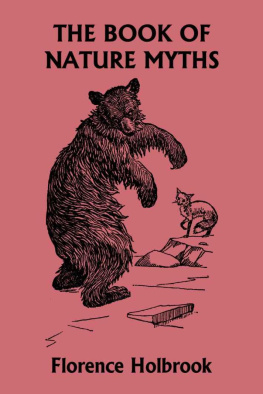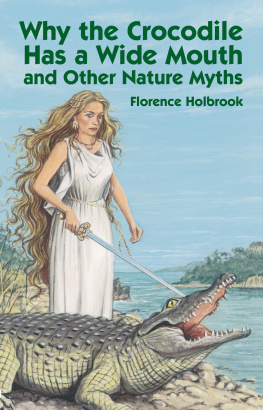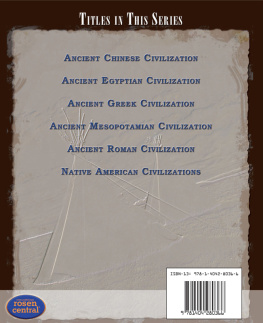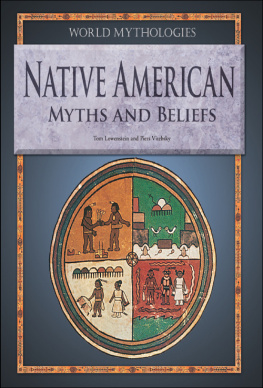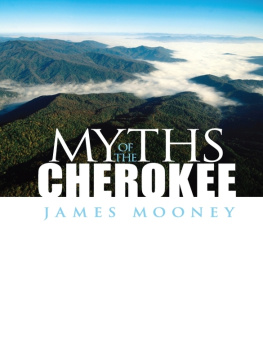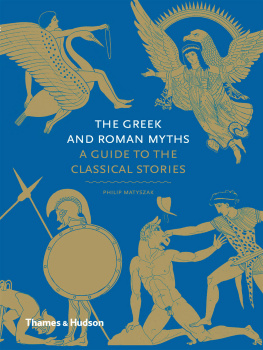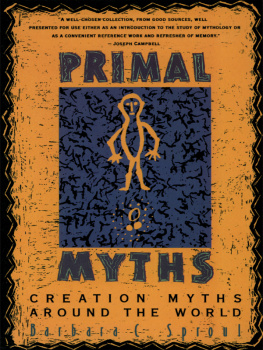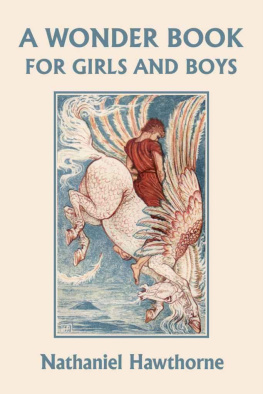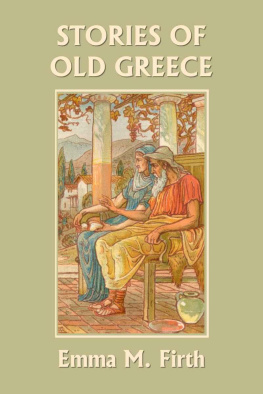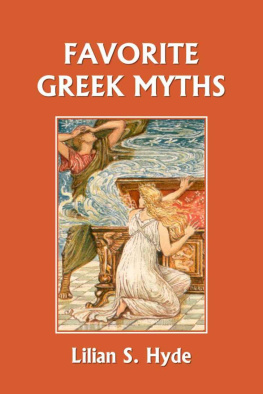The Book of Nature Myths
by
Florence Holbrook
Yesterday's Classics
Chapel Hill, North Carolina
Cover and Arrangement 2010 Yesterday's Classics, LLC
All rights reserved. No part of this book may be reproduced or retransmitted in any form or by any means without the written permission of the publisher.
This edition, first published in 2010 by Yesterday's Classics, an imprint of Yesterday's Classics, LLC, is an unabridged republication of the work originally published by Houghton, Mifflin and Company in 1902. This title is available in a print edition (ISBN 978-1-59915-313-1).
Yesterday's Classics, LLC
PO Box 3418
Chapel Hill, NC 27515
Yesterday's Classics
Yesterday's Classics republishes classic books for children from the golden age of children's literature, the era from 1880 to 1920. Many of our titles are offered in high-quality paperback editions, with text cast in modern easy-to-read type for today's readers. The illustrations from the original volumes are included except in those few cases where the quality of the original images is too low to make their reproduction feasible. Unless specified otherwise, color illustrations in the original volumes are rendered in black and white in our print editions.
Preface
In preparing the Book of Nature Myths the desire has been to make a second reader which would be adapted to the child's interest, ability, and progress.
The subject-matter is of permanent value, culled from the folk-lore of the primitive races; the vocabulary, based upon that of the Hiawatha Primer, is increased gradually, and the new words and phrases will add to the child's power of expression. The nave explanations of the phenomena of nature given by the primitive races appeal to the child's wonder about the same phenomena, and he is pleased and interested. These myths will gratify the child's desire for complete stories, and their intrinsic merit makes them valuable for oral reproduction.
The stories have been adapted to youthful minds from myths contained in the works of many students of folk-lore whose scholarship is undisputed. Special acknowledgment is due Miss Eva March Tappan for her valuable assistance in the final revision of the text.
Contents
The Story of the First Humming-Bird
Part I. The Great Fire-Mountain
L ONG, long ago, when the earth was very young, two hunters were traveling through the forest. They had been on the track of a deer for many days, and they were now far away from the village where they lived. The sun went down and night came on. It was dark and gloomy, but over in the western sky there came a bright light.
"It is the moon," said one.
"No," said the other. "We have watched many and many a night to see the great, round moon rise above the trees. That is not the moon. Is it the northern lights?"
"No, the northern lights are not like this, and it is not a comet. What can it be?"
It is no wonder that the hunters were afraid, for the flames flared red over the sky like a wigwam on fire. Thick, blue smoke floated above the flames and hid the shining stars.
FROM THE WIGWAM OF THE GREAT SPIRIT
"Do the flames and smoke come from the wigwam of the Great Spirit?" asked one.
"I fear that he is angry with his children, and that the flames are his fiery war-clubs," whispered the other. No sleep came to their eyes. All night long they watched and wondered, and waited in terror for the morning.
When morning came, the two hunters were still watching the sky. Little by little they saw that there was a high mountain in the west where the light had been, and above the mountain floated a dark blue smoke. "Come," said one, "we will go and see what it is."
They walked and walked till they came close to the mountain, and then they saw fire shining through the seams of the rocks. "It is a mountain of fire," one whispered. "Shall we go on?" "We will," said the other, and they went higher and higher up the mountain. At last they stood upon its highest point. "Now we know the secret," they cried. "Our people will be glad when they hear this."
Swiftly they went home through the forest to their own village. "We have found a wonder," they cried. "We have found the home of the Fire Spirit. We know where she keeps her flames to help the Great Spirit and his children. It is a mountain of fire. Blue smoke rises above it night and day, for its heart is a fiery sea, and on the sea the red flames leap and dance. Come with us to the wonderful mountain of fire."
The people of the village had been cold in the winter nights, and they cried, "O brothers, your words are good. We will move our lodges to the foot of the magic mountain. We can light our wigwam fires from its flames, and we shall not fear that we shall perish in the long, cold nights of winter."
So the Indians went to live at the foot of the fire-mountain, and when the cold nights came, they said, "We are not cold, for the Spirit of Fire is our good friend, and she keeps her people from perishing."
Part II. The Frolic of the Flames
F OR many and many a moon the people of the village lived at the foot of the great fire-mountain. On summer evenings, the children watched the light, and when a child asked, "Father, what makes it?" the father said, "That is the home of the Great Spirit of Fire, who is our good friend." Then all in the little village went to sleep and lay safely on their beds till the coming of the morning.
But one night when all the people in the village were asleep, the flames in the mountain had a great frolic. They danced upon the sea of fire as warriors dance the war-dance. They seized great rocks and threw them at the sky. The smoke above them hid the stars; the mountain throbbed and trembled. Higher and still higher sprang the dancing flames. At last, they leaped clear above the highest point of the mountain and started down it in a river of red fire. Then the gentle Spirit of Fire called, "Come back, my flames, come back again! The people in the village will not know that you are in a frolic, and they will be afraid."
The flames did not heed her words, and the river of fire ran on and on, straight down the mountain. The flowers in its pathway perished. It leaped upon great trees and bore them to the earth. It drove the birds from their nests, and they fluttered about in the thick smoke. It hunted the wild creatures of the forest from the thickets where they hid, and they fled before it in terror.
At last, one of the warriors in the village awoke. The thick smoke was in his nostrils. In his ears was the war-cry of the flames. He sprang to the door of his lodge and saw the fiery river leaping down the mountain. "My people, my people," he cried, "the flames are upon us!" With cries of fear the people in the village fled far away into the forest, and the flames feasted upon the homes they loved.
The two hunters went to look upon the mountain, and when they came back, they said sadly, "There are no flowers on the mountain. Not a bird-song did we hear. Not a living creature did we see. It is all dark and gloomy. We know the fire is there, for the blue smoke still floats up to the sky, but the mountain will never again be our friend."
Part III. The Bird of Flame
W HEN the Great Spirit saw the work of the flames, he was very angry. "The fires of this mountain must perish," he said. "No longer shall its red flames light the midnight sky."

